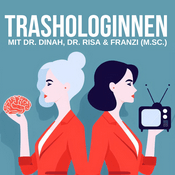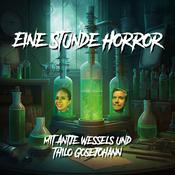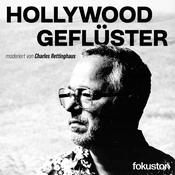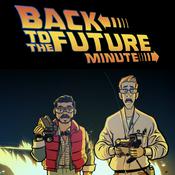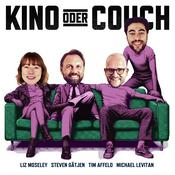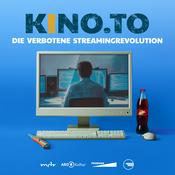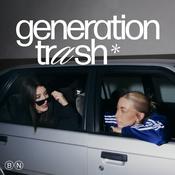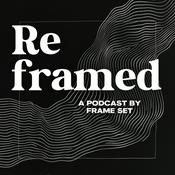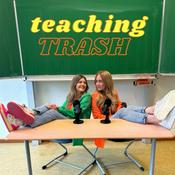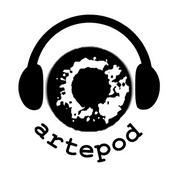39 Episoden
Pink Power at Harvard? Feminism, Ambition, and Cultural Legacy in "Legally Blonde"
29.12.2025 | 32 Min.#6 Pink Power at Harvard? Feminism, Ambition, and Cultural Legacy in "Legally Blonde"
For our sixth English episode, we take a fresh look at "Legally Blonde" (US 2001, Robert Luketic), this time in a faster, focused format: one film, one conversation, directly after the screening. We recommend (re)watching Legally Blonde before listening to our episode - just right in time for the 2026 premiere of the prequel series "Elle".
We watched the film together in Cambridge, Massachusetts, so this episode is tied to place and context. While Barbara is spending the fall and spring semester as a visiting scholar at Harvard and Bianca is conducting research at the Schlesinger Library/ Harvard, it felt only fitting to revisit a film so deeply entangled with Harvard’s cultural imagination and representation.
"Legally Blonde" is often dismissed as serving only as light entertainment, yet its influence is anything but superficial. From Elle Woods’ unapologetic femininity to her navigation of elite academic spaces, the film raises many questions about gender, ambition, social class and belonging. We discuss how the movie plays with stereotypes, sometimes reinforcing them, sometimes strategically subverting them, and why its vision of feminist success continues to resonate more than twenty years later.
The film’s lasting cultural power was palpable at the beginning of the fall term, when "Legally Blonde" was screened outdoors in front of Harvard’s Widener library for incoming students. The collective movie-going experience, complete with quoted lines and audience interaction, made clear how deeply the film is embedded in popular memory. Adding to this, Reese Witherspoon herself visited Harvard Business School this semester to discuss her production company Hello Sunshine, the business side of female-lead storytelling and the long-term impact of "Legally Blonde" on her approach to storytelling.
In this episode, we ask: What kind of feminism does "Legally Blonde" offer? How performative is its feminism? How does it imagine access to elite institutions and at what cost? Why does its depiction of sexual harassment at the workplace feel right? And why does Elle Woods remain such a powerful figure for conversations about women, work and visibility up to today?- #9 Episode: Conversation with Inna Shevchenko on “Girls and Gods”
This film talk was recorded in English.
On the occasion of the Austrian premiere of Girls and Gods, we met with filmmaker and activist Inna Shevchenko to talk about her first work as a filmmaker/screenwriter - behind and in front of the camera. The film is directed by Arash T. Riahi and Verena Soltiz. It follows Inna while she meets with different women and their spiritual, political, and bodily quests for freedom, intertwining activism, trauma, and transcendence in a cinematic discussion on what it means to live and resist in a patriarchal world in the context of the three monotheistic religions.
In our conversation, Inna speaks about her approach to filmmaking and her process of shaping a constructive dialogue even when opinions were opposing each other, she also talks about the process of selecting the women and initiatives who appear in Girls and Gods. Inna also reflects on the difficult task of shaping the film’s many-hours raw version into its final, concentrated form and how editing became an act of both letting go and sharpening political meaning to find the right balance. We also discuss what her wishes for activism are and why she feels the discussion of religious tradition and practices is essential to feminism. Inna also reflects on the role of cinema and how it can become a tool for collective empowerment and spiritual rebellion.
Girls and Gods is a radical and challenging exploration of womanhood, belief, and liberation. It invites viewers to witness moments of vulnerability and strength, difficult discussions and it leads to questioning systems of domination, and to imagine, alongside its protagonists, a world grounded in equality and freedom.
Before listening to this episode, we recommend watching Girls and Gods currently showing in Austrian cinemas and at selected festivals. Marie Luise Lehner über "Wenn du Angst hast nimmst du dein Herz in den Mund und lächelst"
24.9.2025 | 1 Std. 16 Min.#8 Folge: Filmgespräche - Marie Luise Lehner über „Wenn du Angst hast, nimmst du dein Herz in den Mund und lächelst“
Anlässlich des Kinostarts ihres Langfilmdebüts "Wenn du Angst hast, nimmst du dein Herz in den Mund und lächelst" am 26. September in Österreich haben wir Regisseurin und Autorin Marie Luise Lehner getroffen. Wir sprechen mit ihr über den Entstehungsprozess des Films, über die Figuren Anna und Isolde, über Fragen der sozialen Zugehörigkeit, Scham und Solidarität – und darüber, was es bedeutet, das eigene Herz in den Mund zu nehmen und loszulächeln.
Marie erzählt außerdem, wie sie mit ihrem Film etablierte Formen, wie das klassischen Aufstiegsnarrativ ("Vom Tellerwächer zum Millionär") aufbrechen möchte, was es bedeutet von innen zu schauen, wie Musik (Marie spielt auch in der Punkband Schapka) im Film die Funktion eines poetischen Kommentars einnimmt, wie Watermelon Woman sie inspiriert hat und dass das Nachdenken über Queerness und Klasse in der österreichischen Filmlandschaft bisher eindeutig zu kurz kommt. Welche strukturellen und inhaltlichen Aufbrüche würden der öst. Filmlandschaft gut tun? Wie kann man sich durch die Förderstrukturen durcharbeiten und sich dabei selbst treu bleiben?
Im Zentrum des Films steht die zwölfjährige Anna, die gemeinsam mit ihrer gehörlosen Mutter Isolde in einfachen Verhältnissen lebt. Mit dem Wechsel ins Gymnasium in einem Wiener Innenstadtbezirk prallen für sie unterschiedliche soziale Welten aufeinander – und die Frage, wie viel Raum Scham und Stolz im eigenen Leben einnehmen dürfen, wird immer drängender. Auf der Skiwoche muss Anna sich krankstellen, da das dafür gesparte Geld stattdessen in ein Schlafsofa floss, das ihrer Mutter eine Liebesbeziehung ermöglicht und Anna jedoch auch mehr Privatsphäre verschafft. Eine besondere Verbindung entsteht zu Mara, einer Klassenkameradin. In ihrer Freundschaft erproben die Beiden neue Formen von Nähe und Solidarität und loten zugleich Grenzen und Möglichkeiten von Genderrollen aus.
"Wenn du Angst hast, nimmst du dein Herz in den Mund und lächelst" ist ein Film über den Weg von Scham zu Stolz, über Zuneigung, Fürsorge und Solidarität – und ein Narrativ der Hoffnung.- #7 Folge: Vor der Premiere – Gespräch mit Olga Kosanović über „Noch lange keine Lipizzaner“
Anlässlich des Kinostarts ihres Debütfilms "Noch lange keine Lipizzaner" am 12. September in Österreich haben wir Regisseurin und Drehbuchautorin Olga Kosanović getroffen, um über den Ursprung der Filmidee, ihre Arbeit am Film, das österreichische „Wir“ und Identität, die verschiedenen filmischen Formen im Film, sowie ihre Perspektive und Hoffnungen als Filmemacherin zu sprechen.
Ausgangspunkt ist Kosanović’ eigene Geschichte: Obwohl in Österreich geboren und aufgewachsen, blieb ihr die Staatsbürgerschaft lange verwehrt. Ein Online-Kommentar zu ihrem Fall in einer Tageszeitung brachte den Satz hervor: „Wenn eine Katze in der Hofreitschule Junge wirft, sind das noch lange keine Lipizzaner.“ Der Film nimmt diesen Moment der Abgrenzung als Ausgangspunkt für eine vielschichtige Reflexion über Zugehörigkeit, Identität und das „Wir“ einer Gesellschaft, die trennt zwischen „drinnen“ und „draußen“. - #5 Masks, Gender, and Genre: Inside Billy Wilder’s Cinema in Sunset Boulevard, Some Like It Hot, and One, Two, Three
This episode takes us from the shadows of Sunset Boulevard to the political turmoils of Cold War Berlin—through the sharp, satirical, and entertaining world of Billy Wilder. Born in Austria-Hungary and later forced into exile by the Nazi regime, Wilder rose to become one of the most iconic writer-directors of Hollywood’s so-called Golden Age. But beneath the wit and glamour of his films lie biting critiques of power, gender, and performance—on and off screen.
We explore three of Wilder’s most famous works: the noir comedy of Sunset Boulevard (1950), the screwball cross-dressing comedy Some Like It Hot (1959), and the hyperactive capitalist satire One, Two, Three (1961).
Wilder’s characters are often caught between self-invention and social expectation—whether it's two musicians hiding in plain sight in women's clothing, a fading diva clinging to a forgotten image, or a Coca-Cola executive trying to control everything (and everyone) around him. His films perform genre, but they also perform ideology: letting us laugh, wince, and sometimes mourn at the ways gender, class, and desire are negotiated in mid-century cinema.
Through a diverse-feminist lens, we ask: How does Wilder use performance and disguise—especially in Some Like It Hot—to explore the instability of gender roles and social norms? What do Norma Desmond’s haunting monologues in Sunset Boulevard tell us about ageism, stardom, and the gendered decay of Hollywood dreams? And how does One, Two, Three deploy rapid-fire dialogue and farce to reveal the absurdities of postwar capitalism and patriarchal order?
Key questions in this episode include: How does disguise (voluntary or not) expose deeper truths about identity and social gender performance? What does Wilder’s comedy make visible about power and exclusion? And how do these films speak to the immigrant experience of navigating and reshaping dominant narratives?
Weitere TV und Film Podcasts
Trending TV und Film Podcasts
Über Ned Wuascht
NED WUASCHT – WIR GEH’N FISCH’N
der Podcast fürs feministische Filmlesen.
ist ein kritisch, feministischer Filmpodcast der Wiener Filmwissenschaftlerinnen Bianca Jasmina Rauch und Barbara Wolfram.
Alle paar Wochen analysieren wir Filme zwischen Arthouse und Popkultur.
https://nedwuascht.com/
Sounds von Zapsplat.com
Podcast-WebsiteHöre Ned Wuascht, Zwei wie Pech & Schwafel und viele andere Podcasts aus aller Welt mit der radio.de-App

Hol dir die kostenlose radio.de App
- Sender und Podcasts favorisieren
- Streamen via Wifi oder Bluetooth
- Unterstützt Carplay & Android Auto
- viele weitere App Funktionen
Hol dir die kostenlose radio.de App
- Sender und Podcasts favorisieren
- Streamen via Wifi oder Bluetooth
- Unterstützt Carplay & Android Auto
- viele weitere App Funktionen


Ned Wuascht
Code scannen,
App laden,
loshören.
App laden,
loshören.






